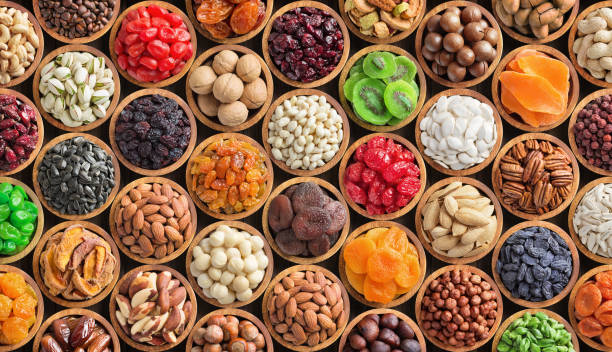Dry fruits, also known as dried fruits, are a popular snack and ingredient in many recipes. They are made by removing the water content from fresh fruits, leaving behind a concentrated source of nutrients. But what exactly are the nutritional benefits of dry fruits, and are they healthy for you to consume?
Nutritional Value of Dry Fruits
First, let’s take a look at the different types of dry fruits and their nutrient profiles. Some of the most popular dry fruits include raisins, apricots, dates, figs, prunes, and cranberries. These fruits are high in fiber, vitamins, and minerals. For example, raisins are a good source of iron, potassium, and B vitamins, while apricots are high in vitamin A and beta-carotene. Dates are high in magnesium and potassium, and figs are rich in calcium and iron. Prunes are high in antioxidants and have a natural laxative effect, and cranberries are a good source of vitamin C and antioxidants.
Are Dry Fruits Healthy for You?
In addition to these specific nutrients, dry fruits also provide a variety of health benefits. They are high in antioxidants, which can help to protect the body against damage from free radicals and may reduce the risk of certain diseases, such as cancer. Dry fruits are also a good source of fiber, which can help to promote healthy digestion and may lower the risk of heart disease.
Dry fruits are also a good alternative to fresh fruits for people who want to add more fruits to their diet but have limited access to fresh fruits, or who are looking for a convenient, portable snack. They are also often used as an ingredient in recipes, such as cakes, cookies, and granola, providing a natural sweetener and adding nutrition to the dish.
However, it’s important to note that dry fruits are also high in natural sugar, which can contribute to weight gain and other health problems if consumed in excessive amounts. It’s also important to be mindful of the added sugars and preservatives that are sometimes added to dry fruits during the processing. To avoid these added sugars, it’s best to choose dry fruits that are labeled as “unsweetened” or “no added sugar.”
In conclusion, dry fruits can be a healthy and nutritious addition to your diet. They are high in fiber, vitamins, and minerals, and provide a variety of health benefits. However, it’s important to consume them in moderation, as they are also high in natural sugar. Be mindful of added sugars and preservatives, and choose unsweetened or no added sugar varieties to get the most nutritional benefits. With proper portion control, dry fruits can be a delicious, nutritious, and healthy addition to your diet.

 Home
Home Health
Health Diet & Nutrition
Diet & Nutrition Living Well
Living Well More
More












